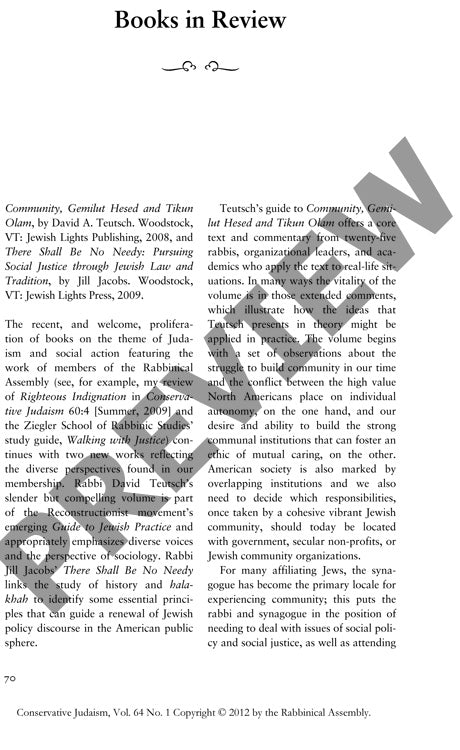Books in Review
Couldn't load pickup availability
Judaism's rich frameworks for social justice take markedly different forms in two influential works by Rabbinical Assembly scholars. David A. Teutsch's "Community, Gemilut Hesed and Tikun Olam" (2008) and Jill Jacobs' "There Shall Be No Needy" (2009) represent distinct yet complementary approaches to applying Jewish principles to contemporary social challenges. Through comparative analysis, their contrasting methodologies illuminate the diversity of modern Jewish social justice scholarship. Teutsch, writing for the Reconstructionist movement, orchestrates a chorus of twenty-five voices to explore community-based decision-making processes, emphasizing sociological perspectives and local implementation of ethical principles. Jacobs, meanwhile, grounds her examination of American social policy in historical analysis and halakhic methodology, particularly drawing from Choshen Mishpat (civil law) to address pressing issues like poverty, healthcare, workers' rights, and environmental concerns. While Teutsch advocates for process-oriented community engagement without prescribing specific solutions, Jacobs provides detailed textual and historical foundations for informed communal discourse on national issues. Both authors share the crucial insight that Judaism offers analytical frameworks rather than predetermined answers to social questions. Together, these works provide essential tools for applying sociological, historical, and textual methodologies to this expanding field of Jewish thought and practice.

More Information
-
Physical Description
-
Publication Information
Published 2012
ISBN
-
Publication Credits

